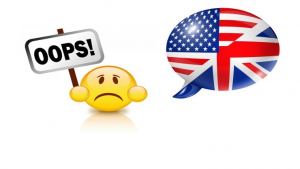Language/English/Vocabulary/Common-Mistakes/fr
Si vous voulez améliorer votre anglais, voici quelques erreurs courantes à éviter. J'ai vu que ces erreurs étaient souvent faites sur le site. Si vous avez de la difficulté à écrire ces mots correctement, ne vous inquiétez pas, il arrive parfois que des locuteurs natifs fassent ces mêmes erreurs. Si vous êtes un débutant, ne vous inquiétez pas, ayez une approche globale. Les gens comprendront toujours ce que vous dites si vous vous trompez. Cet article est principalement destiné aux apprenants avancés et à ceux qui doivent préparer des examens. Au fait, c'est vraiment génial de vous intéresser aux subtilités de la langue alors que de nombreux locuteurs natifs ne se soucient même pas de faire la différence entre ces mots.
"What" et "Which"?
(C'est l'erreur la plus courante que j'ai constatée).
- What is used for an undefined number of things.
“What color dress should I wear?” (there could be millions of different colors)
- Which refers to a defined number of things.
If you were choosing between three different colored dresses in your closet, you would use which. “Which color dress should I wear?”
Who vs. Whom?
If in doubt, choose “who.” I’m not sure how strict other countries are on this rule, but most Americans don’t care.
The general rule is, if you can substitute “he” into the sentence, then the correct word is “who.” If you can substitute “him” into the sentence, the correct word is “whom.”
“I know whom the story was about.” (Using the substitution, “The story was about him.”) “I know who wrote the story.” (Using the substitution, “I know he wrote the story.”)
Further vs. Farther
Farther refers to physical distance, while further means to a greater degree.
“I don’t know how much farther I can walk.” “You shouldn’t need any further explanation after you read this article.”
Loose vs. Lose
- Loose is an adjective.
“That screw is loose.”
- Lose is a verb, meaning to not win something or to misplace/not be able to find something.
“You always lose when you play Monopoly.” “Did you lose your ring again?”
Affect vs. Effect
- Affect is a verb.
“Your sadness affects other people.”
- Effect is a noun.
“Studying has a profound effect on test scores.”
Accept vs. Except
- Accept means to agree or receive something.
“I accept your apology.” “In 2016, Leonardo DiCaprio finally accepted his first Oscar.”
- Except means aside from, as a way of excluding things.
“I’d be happy with any color except pink.”
Few vs. Less
- Few means small in number, and is used with something that can be counted. You can also use “fewer” to compare things.
“There were few reasons why I hated him, but they were strong ones.” “After he ate a jelly bean, there were fewer in the jar.”
- Less means smaller in amount, and is used with something that can be measured, but not definitively counted.
“After he drank water, there was less of it in the bottle.”
Then vs. Than
- Then is used as a transition in time.
“I went to the mall, then I went to the park.”
- Than is used to compare things to one another.
“My brother has more money than me.” English is a pretty complicated language when you put all these similar words next to each other. They look virtually the same, but have different meanings. Don't worry if it takes a while to get the hang of these words!
Good luck with your English!

